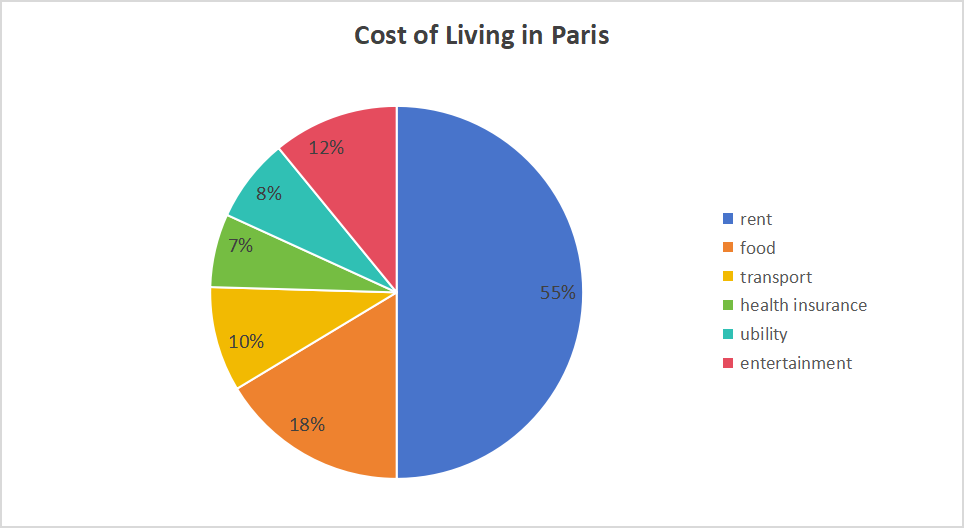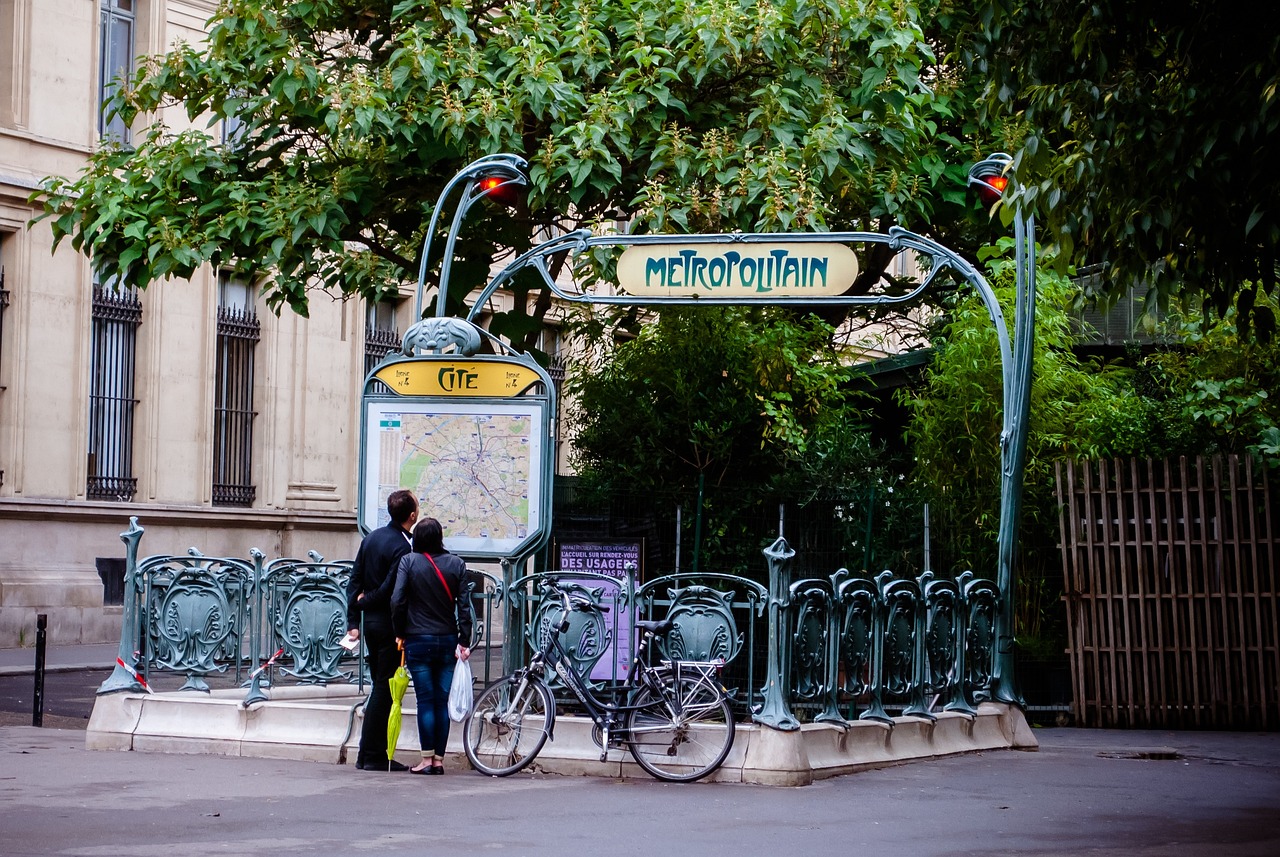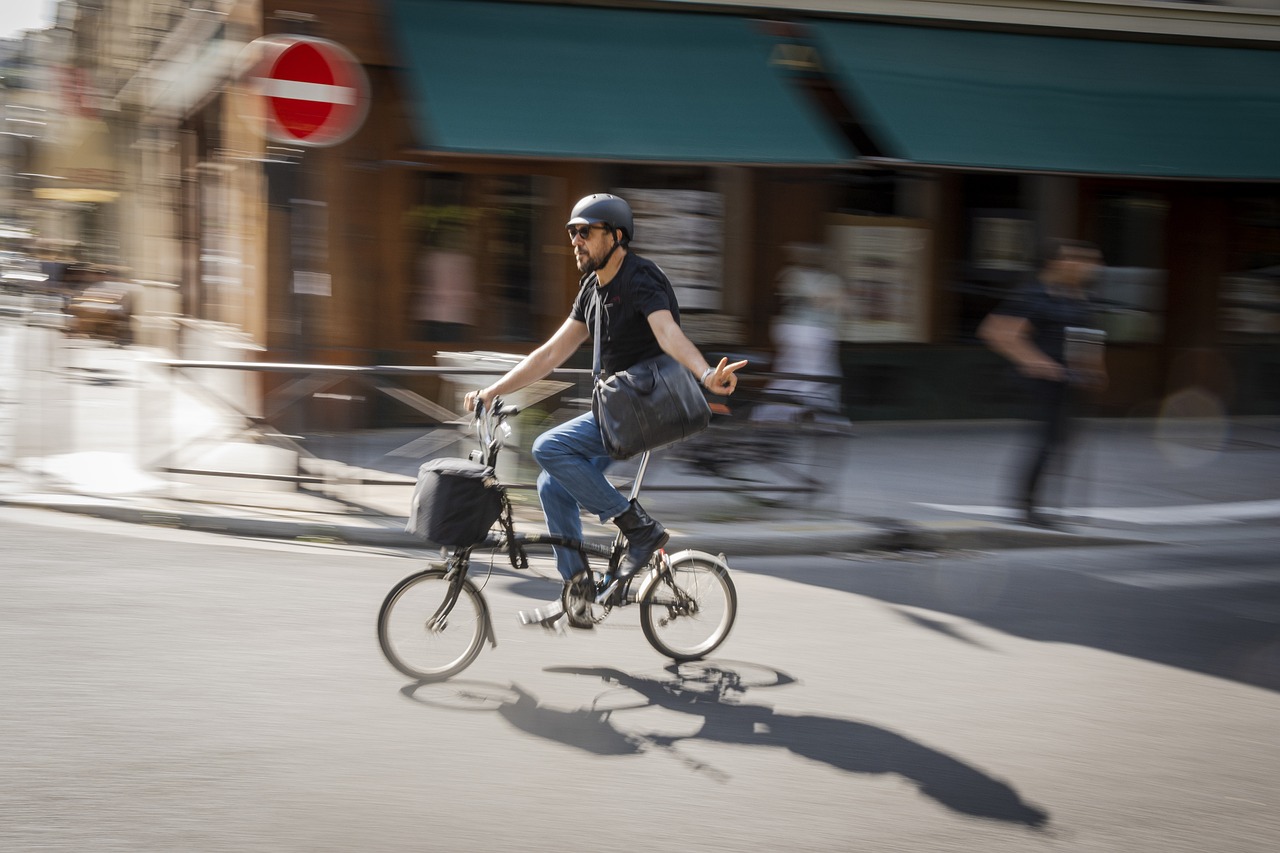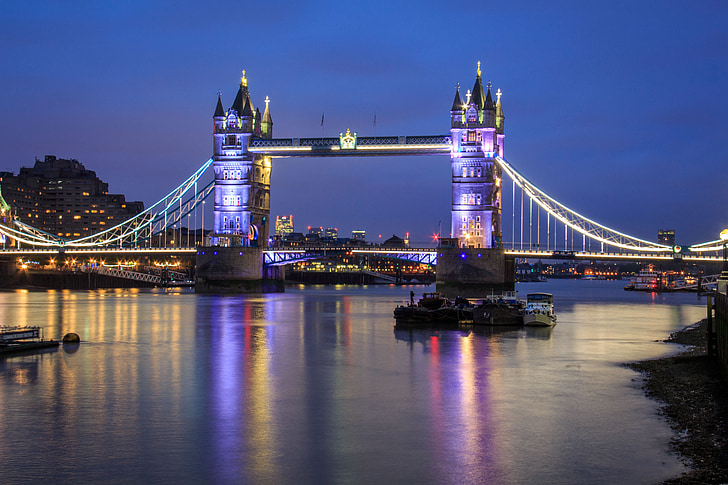The cost of living in Paris is the most important thing you should know when you decide to settle down in the big city. Whether it is for career advancement, further studies abroad, exploring French culture, or simply for the pleasure of experiencing life in this international metropolis, Paris has always attracted people worldwide over the years. As the capital of France, Paris is known for its high cost of living. However, compared to cities like London, Tokyo and New York, the average cost of living in Paris is not that expensive, making it an affordable choice for most people. So what is the cost of living in Paris? Read on, and the answer is on the verge of being revealed.
Is Paris Expensive to Live in?
Yes, Paris is expensive to live in, compared to other French cities, such as Lyon, Marseille and Bordeaux. The cost of living in Paris, France, ranges between €1,400 and €2,500 per month, while small cities in France usually offer more affordable living costs, with average monthly expenditures ranging between €800 and €1,200. Below are the details of the cost of living in each French city.
| City | Student Expenses (€) | Working Professional (€) | Luxury Lifestyle (€) |
|---|---|---|---|
| Paris | 1000–1200 | 1500–2500 | 3000+ |
| Lyon | 800–1000 | 1200–2000 | 2500+ |
| Marseille | 700–900 | 1100–1800 | 2200+ |
| Bordeaux | 800–1000 | 1300–2000 | 2500+ |
| Toulouse | 700–900 | 1100–1700 | 2200+ |
| Montpellier | 650–900 | 1100–1600 | 2000+ |
| Nice | 800–1000 | 1300–2000 | 2600+ |
| Nantes | 700–900 | 1100–1700 | 2000+ |
| Strasbourg | 700–900 | 1100–1700 | 2000+ |
| Rennes | 650–900 | 1100–1600 | 1900+ |
| Lille | 700–900 | 1100–1800 | 2000+ |
| Grenoble | 650–850 | 1000–1600 | 1900+ |
| Dijon | 600–800 | 1000–1500 | 1800+ |
| Reims | 650–850 | 1000–1600 | 1900+ |
| Aix-en-Provence | 750–950 | 1200–1800 | 2200+ |
Compared to other popular international cities such as London, New York and Washington, the cost of living in Paris, France, is at a more affordable level. Here are the monthly living costs of each big city in the world.
| City | Monthly Living Costs (€) |
|---|---|
| Paris | 1000–2000 |
| New York | 3000–5000 |
| London | 2500–4000 |
| Tokyo | 1800–2500 |
| Singapore | 3000–4500 |
| Sydney | 2500–4000 |
| Berlin | 1500–2500 |
What is the Cost of Living in Paris?
The cost of living in Paris is about €1,400-€2,500 per month, including accommodation, food, transportation, entertainment, healthcare (covered by insurance), and other expenses. Among them, rent is the largest expense, accounting for approximately 50% to 60% of the living costs in Paris. The proportion of food is 15% – 20%, and transportation accounts for 8% – 12%. The spending on health insurance and bill expenses is the smallest. The cost of entertainment constitutes the largest share of discretionary expenses, meaning residents in Paris have great flexibility to adjust their spending according to their disposable income, enabling them to fully enjoy their leisure life.

1. Cost of Rent in Paris
As the biggest part of your cost of living in Paris, rent ranges from €400 to €2,500 per month, depending on the location, size, and amenities of the house you choose. In 2025, a furnished 40-square-meter studio apartment in Paris typically rents for €1,500–€2,500 per month, depending on the neighbourhood. Central districts (e.g., Le Marais, the 1st, 6th, and 8th arrondissements) command the highest rents, due to their prime locations. Compared to the rent in New York, the rent in Paris is 160% lower. London rents are on average 37% higher than Paris.

In 2025, the monthly living cost in Paris for students was €1,626.76, with an increase of 4.13% compared to last year. Although universities in Paris offer on-campus student accommodation, there are still some students who have no place to live due to the fierce competition for dormitories. Living in off-campus student accommodation is sometimes cheaper than in resident halls.
To ease the financial burden, international students can rent shared student housing in Paris during their studies. Shared apartments in central Paris cost only €400 to €700, becoming a more popular choice for most students and professionals. With the central location in the city centre, residents can still enjoy a vibrant life and a shorter commute to key destinations. If you have no idea which area you should choose to live in, you can come to uhomes.com and contact the professional consultants.
To help you know more about the rent of important neighbourhoods in Paris, we compiled the following information of studio rental costs by area:
- Central Paris (1st–7th arrondissements): Rent for a studio or one-bedroom apartment can go from €1200 to €2000. These apartments are located in busy locations with full amenities and modern decoration, some popular apartments include Canvas La Défense and Les Estudines Paris-Levallois.
- Northern and Eastern Paris (18th–20th arrondissements): These neighborhoods are more affordable, with rents between €800 and €1200 for small apartments. But we can still find affordable apartments from €550 per month like Paris Noisy-le-Grand.
- Suburban areas (Saint-Denis or Ivry-sur-Seine): Rent can drop to €600–€900, but you’ll need to account for commuting costs. It’s important to find an accommodation near the public transport for daily commuting. Paris Massy-Palaiseau is a modern apartment in this area and near the station.
2. Cost of Food in Paris
As the second largest part of the cost of living in Paris, food expenses are necessary and unavoidable. Unlike rent, food expenses are not a fixed amount, varying with your lifestyle. If you are interested in cooking at home, a monthly food budget of €200-€300 is realistic. Dining out or ordering takeout frequently can quickly double this cost.
Groceries are relatively affordable in Paris if you shop at supermarkets like Carrefour, Monoprix, or Lidl. Shopping at local markets can also provide fresher produce at lower prices. Here are typical prices:
| Food | Price |
|---|---|
| Bread | 1.30€–1.50€ |
| Milk (1 litre) | 1.20€ |
| Eggs (12-pack) | 3.00€ |
| Chicken breast (1kg) | 12.00 € |
| Lettuce(1 piece) | 0.99 € |
High-end French restaurants such as Michelin restaurants can be very expensive, but Paris also has a number of affordable fast food and regular restaurants for residents to choose from:
| Food | Price |
|---|---|
| A meal in an inexpensive restaurant | 15.00€ |
| McDonald’s or equivalent fastfood | 12.00€ |
| Beer (0.5 l) | 7.00€ |
| Cappuccino (regular) | 4.00 € |
| Soda(0.33 l) | 3.5 € |
| Water (0.33 l) | 2.8 € |
3. Cost of Transport in Paris
Paris features an efficient public transport network comprising the metro, buses, trams, and RER trains. Public transport reaches nearly all areas of Paris and its surrounding suburbs and is a fairly cost-effective method of commuting. If you are in a hurry, you can also take a taxi, but it’s a little bit expensive. For a short distance, you can rent a bike or take a city walk.
In 2025, the annual subscription fee for the Imagin’R pass used by students in Paris is €392.30, representing a 2.59% increase. For professionals, the Paris monthly pass (Navigo) costs €86.40 per month, providing unlimited use of these public transport options. If you are employed in Paris, your employer typically covers your travel expenses.
Taxis in Paris are expensive, with fares starting at €7 and increasing by €1–€1.50 per kilometre. Apps like Uber or Bolt are more affordable, with fares averaging €10-€20 for short distances.

4. Cost of Entertainment in Paris
Paris has a romantic art scene. The palaces, art galleries, and museums are worth a month of exploring alone. In addition to these, there are often events for young people in Paris such as music festivals, concerts, operas, and so on. Whether going to the gym, watching a movie, visiting a museum, or having a nice dinner out, it is necessary to set aside some budget for leisure activities. Below is an overview of the ost of entertainment in Paris.
| Activity | Cost (€) |
|---|---|
| Cinema | €12–€15 per ticket |
| Theatre/Concert | €20–€60 |
| Gym Membership | €30–€60 per month |
| Eiffel Tower (Summit Access) | €28.30 for adults / €7.10 for children |
| Louvre Museum | €17 (free for EU residents under 26) |
| Musée d’Orsay | €16 (free for EU residents under 26) |
| Sainte-Chapelle | €11.50 |
| Arc de Triomphe | €13 (free for EU residents under 26) |
| Palace of Versailles | €19.50 (Gardens free on most days) |
| Disneyland Paris (1 Day) | €62–€107 (varies by season) |
| Montparnasse Tower | €18 for adults / €9.50 for children |
| Catacombs of Paris | €15 for adults / €13 for reduced tickets |
| Seine River Cruise | €12–€20 (depending on provider) |
5. Cost of Healthcare in Paris
People who live in France for a long time can apply for public health insurance (Carte Vitale) so that most of their medical expenses are reimbursed. This makes France one of the most affordable countries for healthcare. The cost of medical treatment depends on the patient’s condition, and a typical doctor’s visit only costs about €10, as most are reimbursable.
Mandatory health insurance (CMU) costs €215 per year, with supplementary insurance ranging from €50 to €150 annually. For families with children, monthly daycare or preschool fees are approximately $899, while international elementary school tuition amounts to $15,110 per year. Foreigners and students also have access to public healthcare or can choose to purchase additional insurance.
6. Cost of Education in Paris
Children between the ages of 3 and 16 can enjoy free education in France. The French government provides free entry to public schools for children, but of course you can also choose private schools.
If your child wants to enter a French university, the public universities charge a registration fee of approximately €170 a year. This fee does not include the books and other expenses. Private schools such as business schools and international exchange programs can be more expensive, usually over €10,000 per year.
7. Cost of Living in Paris: Other Expenses
Utility bills and internet fees are also essential spending for people living in Paris. In general, the utilities include fees on water, gas, heating, and electricity. An 85-square-meter apartment is expected to cost approximately 230 euros per month for utilities. This is at the average level in major European cities and is much cheaper than in New York. To keep you online for study and work, you need to choose from a wide range of internet and mobile phone plans, which are relatively affordable. Below are the details.
- Bundled deals from major providers like Orange, SFR, or Free are popular choices, which cost €10–€20 per month.
- For short stays, prepaid SIM cards for €10–€20 are a flexible and cost-effective option.
- If your accommodation in Paris does not include internet, you have to install a home internet (Fiber/ADSL), which usually costs €20-€40 per month.
How to Reduce Cost of Living in Paris?
Apart from the cost of housing and transportation, expenses on food, entertainment, and other supplies have also been rising continuously, leading to more students and professionals on a limited budget seeking to save money. There are many ways to reduce the cost of living without compromising your quality of life. By strategically managing your spending on housing, transportation, food and leisure, you can keep your expenses within your €1,000 budget. Below are the tips for reducing the cost of living in Paris.
Rent:
- Make the Most of Housing Subsidies: Before signing a lease, carefully review the terms to confirm whether utilities and other fees are included in the rent. International students can apply for housing subsidies (CAF), which range from €50 to €200 per month depending on rent costs.
- Choose the Right Neighbourhood: Central Paris has higher rents. If your budget is limited, consider suburbs or more outlying areas like the 18th or 19th arrondissements, where rents are relatively lower.
Transportation:
- Apply for a discounted transit pass: Students under 25 can obtain the Paris Navigo student discount monthly pass, which is more affordable at around 50 euros and covers multiple modes of transportation, including the metro, buses, and RER.
- Choose the right mode of transportation: For short trips, consider options like shared bikes or shared scooters, which are both convenient and economical.
Food:
- Shop at discount supermarkets: Supermarkets like Lidl and Aldi offer relatively low prices, making them a preferred choice for daily grocery shopping. Additionally, French markets provide fresh and affordable fruits and vegetables.
- Cut back on dining out: Eating out can be costly, with set meals at regular restaurants costing around 10-15 euros, while Michelin-starred restaurants are even pricier. Consider reducing the frequency of dining out.
Leisure and health insurance:
- Take advantage of free cultural events. There are always free or low-cost activities available in Paris: picnics along the Seine River, walks in the parks, and even visits to unique museums, many of which are free on certain days.
- Select appropriate health insurance: International students must enrol in France’s social health insurance, which is free in most cases. They may also opt for supplemental insurance costing €20 to €50 per month based on their needs.
Conclusion on Cost of Living in Paris
The cost of living in Paris is at the top level in France and is showing a slight upward trend in 2025. The cost of renting a private apartment is relatively high, while public university dormitories are inexpensive but require subsidies. Transportation costs vary depending on the population. Students can enjoy certain discounts through dedicated passes. In terms of food, school cafeterias and supermarket purchases can effectively control expenses, but dining out, especially French cuisine, is more expensive. Additionally, insurance is a fixed and necessary expense. The overall cost of living in Paris, France, should be flexibly planned based on personal living choices, consumption habits, and family circumstances.

FAQ
How much does it cost to live in Paris?
The average cost of living in Paris is between €1,400 and €2,500, depending on your consumption habits and personal lifestyle. Students can get more discounts, and usually €1000 or less is enough to cover their Paris living expenses. Professionals have better consumption power and generally spend around €1,500 per month.
What is the average rent in Paris?
Your monthly rent in Paris depends on your requirements for the location and decoration of your Paris accommodation. If you choose a cheap flatshare like most people do, it will probably only cost you €500 per month. If you wish to live in a private studio, it will cost more than €800.
Is 1000 euros enough for one month in Paris?
Yes. People living in Paris for a long-term period can keep their cost of living In Paris to less than €1,000! You can get financial assistance through French government housing subsidy, health insurance. And look for cheap housing and restaurants.
Is Paris expensive to live in for students?
No, Paris is not expensive for students to live in. As a student, you can take advantage of many benefits in Paris, including cheap student apartments, government subsidies, student transportation passes, student meal, and free museum visits.
Is Paris cheaper than London?
Yes, Paris has a lower cost of living than London. Even foreigners here have access to government subsidies. Whether you come to Paris to work or study, Paris is a city that is worth visiting.
Is Paris expensive than USA?
Definitely, the cost of living in Paris, France is much lower than in the USA. In Paris, 1,000 euros will cover your cost of living in Paris for a month if you’re not a luxury lifestyle person. But that budget is almost impossible to live in a major American city for a month.
How much money do you need to live comfortably in Paris?
A comfortable living in Paris requires €1,800 to €2,500. It allows for renting a private apartment, having more meal choices, and a reliable private internet connection ensures seamless work, study, and entertainment access.
What is the cost of living in Paris for a couple?
The total monthly cost of living in Paris for a couple averages €2,200–€2,600, with daily meals primarily prepared from self-purchased ingredients and transportation relying on public transit. For a comfortable living, it requires €3,400 to €4,600 for a couple in Paris, with more spending on entertainment and out dining.








